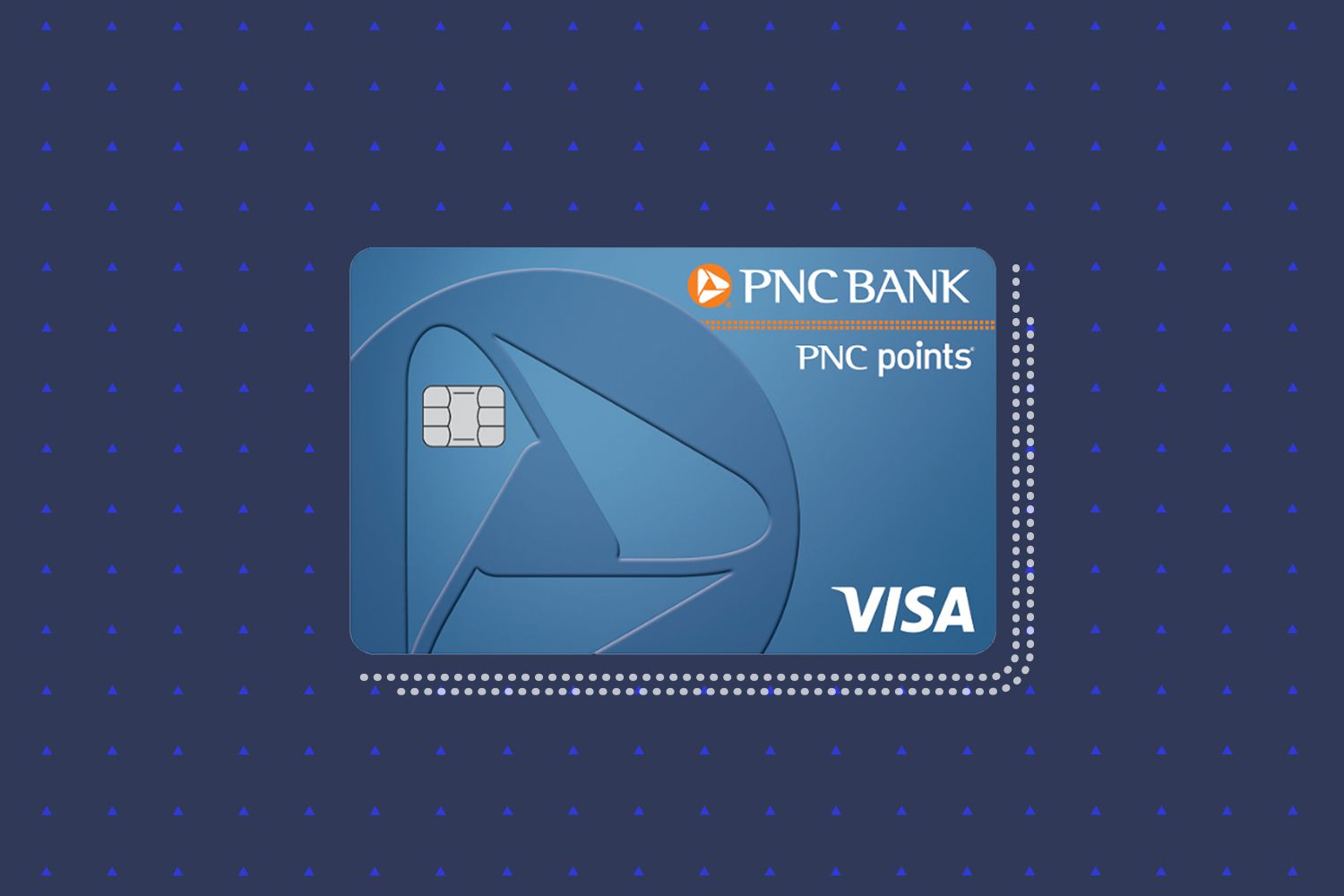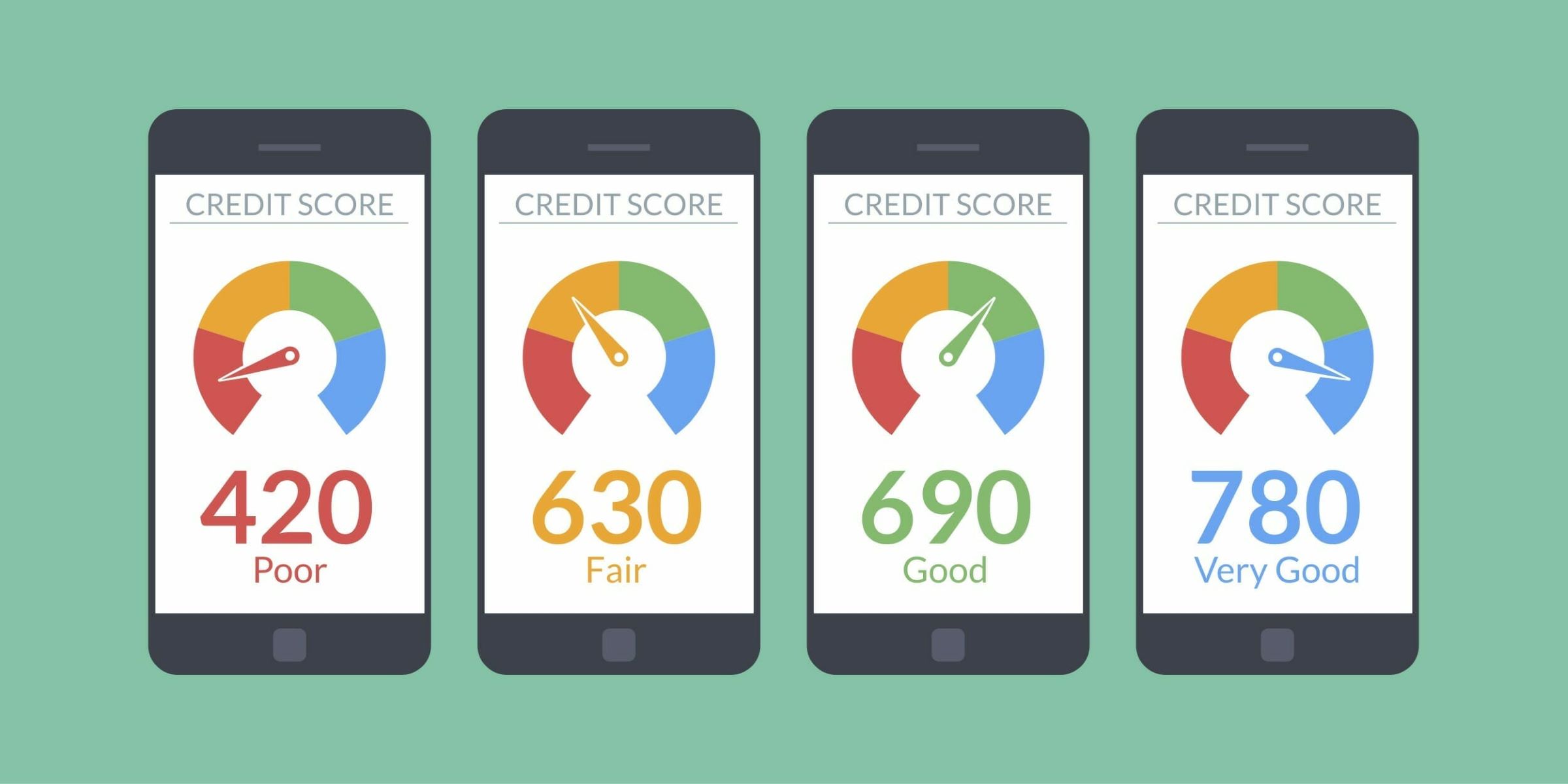

Finance
How To Check Credit Score Under 18
Modified: February 21, 2024
Learn how to check your credit score even if you're under 18 with our finance tips and tricks. Take control of your future and establish good financial habits early on.
(Many of the links in this article redirect to a specific reviewed product. Your purchase of these products through affiliate links helps to generate commission for LiveWell, at no extra cost. Learn more)
Table of Contents
Introduction
Welcome to our comprehensive guide on how to check your credit score when you’re under 18. While most people consider checking their credit score as something to do once they become financially independent adults, it can actually be beneficial to start monitoring your credit score at a younger age. Understanding your credit score and how it affects your financial future is crucial in today’s world.
A credit score is a numerical representation of an individual’s creditworthiness. It is a measure of how likely you are to repay debts based on your credit history. Lenders, landlords, insurance companies, and even potential employers use credit scores to assess financial risk and make informed decisions about extending credit or offering opportunities.
It’s never too early to start building a positive credit history, as it sets the foundation for future financial stability. By learning about credit scores and monitoring them from a young age, you can gain valuable insights into your financial health and take steps to improve it.
Now, you may be wondering if it’s even possible to check your credit score when you’re under 18. Generally, individuals under 18 are not eligible to have a credit score as they often don’t have credit accounts or enough credit history to generate a score. However, there are alternative ways to monitor your credit that we will explore in this guide.
In this article, we will discuss the importance of checking your credit score, alternative methods for monitoring your credit under 18, and the steps you can take to check your credit score when you become eligible. We will also provide valuable tips for improving your credit score.
Remember, building a strong credit history takes time and responsible financial habits. Starting early gives you a head start and can have a significant impact on your future financial opportunities.
Understanding Credit Scores
A credit score is a three-digit number that represents your creditworthiness and is a crucial factor in various financial transactions. It is a standardized metric used by lenders, such as banks, credit card companies, and mortgage providers, to assess the risk of lending to you.
The most commonly used credit scoring model is the FICO Score, developed by the Fair Isaac Corporation. FICO Scores range from 300 to 850, with higher scores indicating better creditworthiness. Other credit scoring models, such as VantageScore, are also used by some lenders.
To determine your credit score, credit bureaus collect information about your credit history from various sources, including credit card issuers, lenders, and public records. They consider factors such as your payment history, credit utilization, length of credit history, types of credit used, and any recent credit inquiries.
Here’s a breakdown of the factors that affect your credit score:
- Payment History: This is the most significant factor, accounting for approximately 35% of your credit score. It reflects whether you have made payments on time and if you have any late payments or defaulted accounts.
- Credit Utilization: This factor measures the amount of available credit you’re using. Keeping your credit utilization below 30% is generally recommended to maintain a healthy credit score.
- Length of Credit History: The length of time you’ve had credit accounts impacts your credit score. Generally, a longer credit history is viewed more favorably.
- Types of Credit Used: Creditors like to see a mix of different types of credit, such as credit cards, loans, and mortgages. Having a diverse credit profile can positively impact your credit score.
- Recent Credit Inquiries: Applying for new credit can result in a slight negative impact on your credit score, especially if you have multiple recent credit inquiries.
Understanding how these factors influence your credit score is essential for managing your finances responsibly. Monitoring your credit score regularly allows you to track your progress and identify areas for improvement.
Next, we will explore why it’s important to check your credit score, even if you’re under 18.
Why Checking Your Credit Score is Important
Checking your credit score is an essential part of maintaining good financial health, even if you’re under 18. Here are several reasons why it’s important to regularly monitor your credit score:
- Financial Awareness: Checking your credit score allows you to have a better understanding of your overall financial situation. It provides insights into your creditworthiness, which can help you make informed decisions about borrowing money, applying for credit cards, renting an apartment, or even securing employment.
- Identity Theft Detection: Monitoring your credit score helps you detect any unauthorized activity or potential identity theft. If you notice sudden drops in your credit score or unfamiliar accounts, it could be a sign that someone has fraudulently used your information. Timely detection can help you take appropriate action to protect yourself and mitigate any potential damage.
- Building Good Credit Habits: By regularly checking your credit score, you become more aware of how your financial behaviors and decisions impact your creditworthiness. It encourages responsible financial habits, such as making on-time payments, keeping credit utilization low, and avoiding excessive debt. Building good credit habits from an early age sets a solid foundation for your future financial endeavors.
- Opportunities for Improvement: Monitoring your credit score allows you to identify areas where you can improve your creditworthiness. For example, if you have a high credit utilization ratio, you can focus on reducing your debt to improve your score. Taking proactive steps to improve your credit can open up better financial opportunities, such as lower interest rates on loans and credit cards.
- Preparing for the Future: Checking your credit score early on helps you prepare for major life events that may require good credit, such as buying a car, renting or buying a home, or starting a business. By maintaining a healthy credit score, you increase your chances of being approved for loans, getting favorable terms, and securing better opportunities in the future.
Remember, your credit score is not set in stone. It can change over time based on your financial decisions and behaviors. Regularly monitoring your credit score gives you the knowledge and power to take control of your financial future.
Now that you understand the importance of checking your credit score, you may be wondering if it’s possible to check your credit score under 18. Let’s explore that in the next section.
Can You Check Your Credit Score Under 18?
Typically, individuals under 18 years old do not have a credit score in the traditional sense, as they often don’t have credit accounts or a sufficient credit history to generate a score. Most credit reporting agencies require individuals to be at least 18 years old to establish their own credit history and generate a credit score.
However, this doesn’t mean that you can’t monitor your credit or take steps to build a solid credit foundation before turning 18. There are alternative methods you can utilize to stay informed about your creditworthiness:
- Credit Monitoring Services: While you may not have a traditional credit score as a minor, some credit monitoring services offer tools that allow you to track your credit activity. These services can help you monitor any changes to your credit report, such as new accounts opened in your name or inquiries made on your behalf.
- Authorized User on a Parent’s Account: If your parents or guardians are willing to add you as an authorized user on one of their credit accounts, such as a credit card, it can help you build credit history. The primary account holder’s responsible credit behavior can positively impact your credit profile and lay the groundwork for a good credit score when you become eligible.
- Secure Credit Cards: Some financial institutions offer secure credit cards that allow individuals under 18 to establish credit. These cards are typically linked to a cash deposit held as collateral. Responsible use of a secure credit card can help you start building credit history and demonstrate your creditworthiness.
- Financial Education: While not directly related to checking your credit score, educating yourself about personal finance, budgeting, and responsible credit management is invaluable. Understanding the factors that contribute to a good credit score and developing healthy financial habits early on will set you on a path to success.
Remember that these alternative methods are not equivalent to having a traditional credit score, and they may have limitations. However, they can provide you with valuable insights and tools to start gaining financial awareness and establish a solid credit foundation for the future.
In the next section, we will explore the steps you can take to check your credit score once you turn 18 and become eligible.
Alternative Ways to Monitor Your Credit Under 18
Although individuals under 18 may not have a traditional credit score or be eligible for credit monitoring services, there are alternative ways to stay informed about your creditworthiness and financial health:
- Annual Credit Reports: The Fair Credit Reporting Act (FCRA) entitles everyone, regardless of age, to receive a free copy of their credit report from each of the three major credit reporting agencies (Equifax, Experian, and TransUnion) once every 12 months. You can request your annual credit reports via the official website AnnualCreditReport.com. Reviewing your credit reports allows you to check for any errors, discrepancies, or fraudulent activities.
- Personal Financial Statements: Creating a personal financial statement can help you keep track of your income, expenses, and assets. It can also serve as a snapshot of your overall financial situation, including any debts you may have. Although it doesn’t provide a credit score, regularly updating your personal financial statement can help you understand your financial obligations and progress over time.
- Identity Theft Monitoring: Identity theft can affect anyone, regardless of age. Consider enrolling in identity theft monitoring services or programs that can help detect suspicious activities related to your personal information. Many of these services offer alerts for unusual account activities or changes in your credit report, giving you an extra layer of protection.
- Financial Education Resources: Taking steps to educate yourself about personal finance, credit management, and building a strong credit history is crucial. Numerous online resources, educational websites, and personal finance blogs offer valuable information on topics such as understanding credit, budgeting, and debt management. Continuously improving your financial knowledge will empower you to make informed decisions as you navigate your financial journey.
While these alternative methods may not provide you with a credit score, they offer valuable insights and tools to monitor your financial health and develop responsible financial habits. It’s important to take advantage of these resources to start building a strong financial foundation as you prepare for the future.
In the next section, we will discuss the steps you can take to check your credit score once you turn 18 and become eligible.
Steps to Check Your Credit Score Under 18
Once you turn 18, you become eligible to check your credit score and access your credit report through the traditional methods used by adults. Here are the steps to follow when you’re ready to check your credit score:
- Educate Yourself: Before diving into the process of checking your credit score, take the time to educate yourself about credit scores and how they are calculated. Understand the factors that influence your score and the importance of maintaining a good credit history.
- Choose a Credit Reporting Agency: There are three major credit reporting agencies – Equifax, Experian, and TransUnion. You can request your credit score and credit report from each agency individually or use websites and services that provide access to scores from multiple agencies.
- Request Your Credit Report: Once you choose a credit reporting agency, visit their website or contact them directly to request your credit report. You may need to provide personal information, such as your name, address, social security number, and date of birth. Be prepared to verify your identity to ensure that the credit report is released to the correct person.
- Review Your Credit Report: Upon receiving your credit report, carefully review it for accuracy. Check for any errors, discrepancies, or accounts that don’t belong to you. If you find any inaccuracies, you can dispute them with the credit reporting agency to have them corrected.
- Consider Credit Monitoring Services: After obtaining your credit score and conducting a thorough review of your credit report, you may consider enrolling in credit monitoring services. These services provide regular updates on changes to your credit report, credit scores, and alerts for potentially fraudulent activities.
- Take Steps to Improve Your Credit: If your credit score is not where you want it to be, take proactive steps to improve it. Make payments on time, keep credit utilization low, and responsibly manage your credit accounts. Over time, these actions can have a positive impact on your creditworthiness.
Remember, checking your credit score is just the first step. Monitoring your credit regularly and practicing responsible financial habits are key to maintaining a healthy credit profile and setting yourself up for financial success in the long run.
In the next section, we will provide valuable tips for improving your credit score.
Tips for Improving Your Credit Score
Improving your credit score is a gradual process that requires discipline, responsible financial habits, and time. Here are some valuable tips to help boost your credit score:
- Paying Bills on Time: Consistently making timely payments on your credit accounts, such as loans and credit cards, is crucial for building a positive credit history. Late payments can have a negative impact on your credit score, so it’s essential to establish a habit of paying bills on time.
- Keeping Credit Utilization Low: Your credit utilization ratio, which is the amount of available credit you’re using, plays a significant role in your credit score. Aim to keep your credit utilization below 30% by paying down balances and avoiding excessive debt. Keeping credit card balances low and paying them off in full each month can boost your credit score over time.
- Monitoring Credit Inquiries: Be mindful of applying for credit too frequently, as each credit inquiry can have a temporary negative impact on your credit score. Only apply for credit when necessary and avoid multiple inquiries within a short period.
- Building a Strong Credit History: Having a longer credit history can positively impact your credit score. Start building credit as soon as you’re eligible, such as by becoming an authorized user on a parent’s account or applying for a secure credit card and using it responsibly.
- Managing Different Types of Credit: Having a diverse credit mix, such as credit cards, loans, and mortgages, can demonstrate your ability to handle different types of credit. However, it’s important not to take on more credit than you can manage responsibly.
- Regularly Checking Your Credit Report: Monitor your credit report regularly for any errors or discrepancies. Dispute any inaccuracies with the credit reporting agencies to ensure your credit report is accurate and reflects your true creditworthiness.
- Being Patient and Persistent: Improving your credit score takes time and consistent effort. It’s important to be patient and stay committed to responsible financial habits. Building a solid credit history is a journey, but the rewards are worth it.
Improving your credit score is a gradual process, but the positive impact it can have on your financial future is immeasurable. By practicing responsible financial habits and being proactive in managing your credit, you can steadily improve your credit score over time.
Now that we’ve explored tips for improving your credit score, let’s conclude this guide.
Conclusion
Checking your credit score is an important aspect of personal finance, even if you’re under 18. While individuals under 18 may not have a traditional credit score, there are alternative ways to monitor your creditworthiness and build a solid credit foundation. By educating yourself about credit scores, staying informed about your credit activity, and practicing responsible financial habits, you can set yourself up for future financial success.
Understanding credit scores and their impact on your financial life is crucial. Regularly monitoring your credit score allows you to gain valuable insights into your creditworthiness, detect any signs of identity theft, and take steps to improve your financial health. Even if you’re not eligible to generate a credit score, you can still review your credit report for accuracy and track your overall financial progress through alternative methods.
Once you turn 18, you can follow the necessary steps to check your credit score through the major credit reporting agencies. Remember to review your credit report, dispute any inaccuracies, and take advantage of credit monitoring services to stay proactive in managing your credit.
Building a good credit score takes time and commitment. By paying bills on time, keeping credit utilization low, managing different types of credit, and regularly monitoring your credit, you can steadily improve your creditworthiness and open doors to better financial opportunities.
Remember, it’s never too early to start building a positive credit history. Start practicing responsible financial habits, and seek opportunities to learn and grow in your understanding of credit and personal finance. By doing so, you will be well-equipped to navigate the financial landscape, make informed decisions, and secure a stable financial future.
Continue to prioritize financial education, responsible credit management, and regular credit monitoring. By taking control of your credit, you can positively impact your financial well-being and achieve your long-term financial goals.














